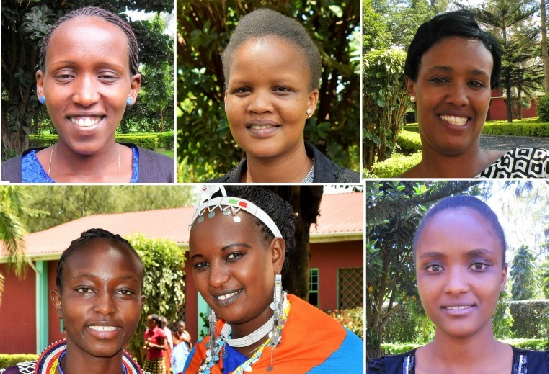Since its conception in 1999, Emusoi Centre has supported the education of more than 1500 young Maasai, and recently Hadzabe, Barbaig, Tatoga and Taturo, women beyond primary school education. Now in its 17th year of existence, the Center has empowered these young women to discover their potentials beyond being considered as a one-time dowry of their families.
The center has produced a number of professional women ranging from teachers (kindergarten/Montessori/primary/secondary school), nurses, laboratory technicians, secretaries, tour guides, tailors, cooks, a pharmacist, social workers, book keepers, accountants, community developers, human resources management graduates, agrobusiness owners, engineers, environmentalists, veterinarians, agricultural extension workers, lawyers and medical doctors. These women have become role models to our current roster of students. Aside from earning their own salaries and making decisions for themselves, they are also helping their families now. In family or community gatherings, their voices are now heard and their opinions are valued by their parents and communities. Their successes are changing the way people think about educating girls, and that change is resulting in more girls being enrolled in school. This realization does not just come from the young women but from the parents themselves.
Now that we are expanding our scope and seeing the need to really broaden the minds of our young women, in 2012, our center started to offer Workshops and Seminars for our young women that focuses on skills necessary/needed in life beyond the four corners of the classroom. During school vacations and Christmas holidays, our staff would offer seminars on various adolescent concerns (teen pregnancy, types of relationships, adolescence/puberty, peer pressure) to culturally based activities (female genital mutilation, early marriage, bride-price, women’s/children’s rights) to specific topics ranging from respect of others and of the environment, budgeting, proper study habits, goal-setting etc. We would often invite resource speakers to come and share their stories to our young women to provide a balance between theories and application.
In the near future, we hope to reach out to the different villages by advocating the importance of educating girls by providing seminars and workshops to the parents, chiefs and elders and to the whole community.

